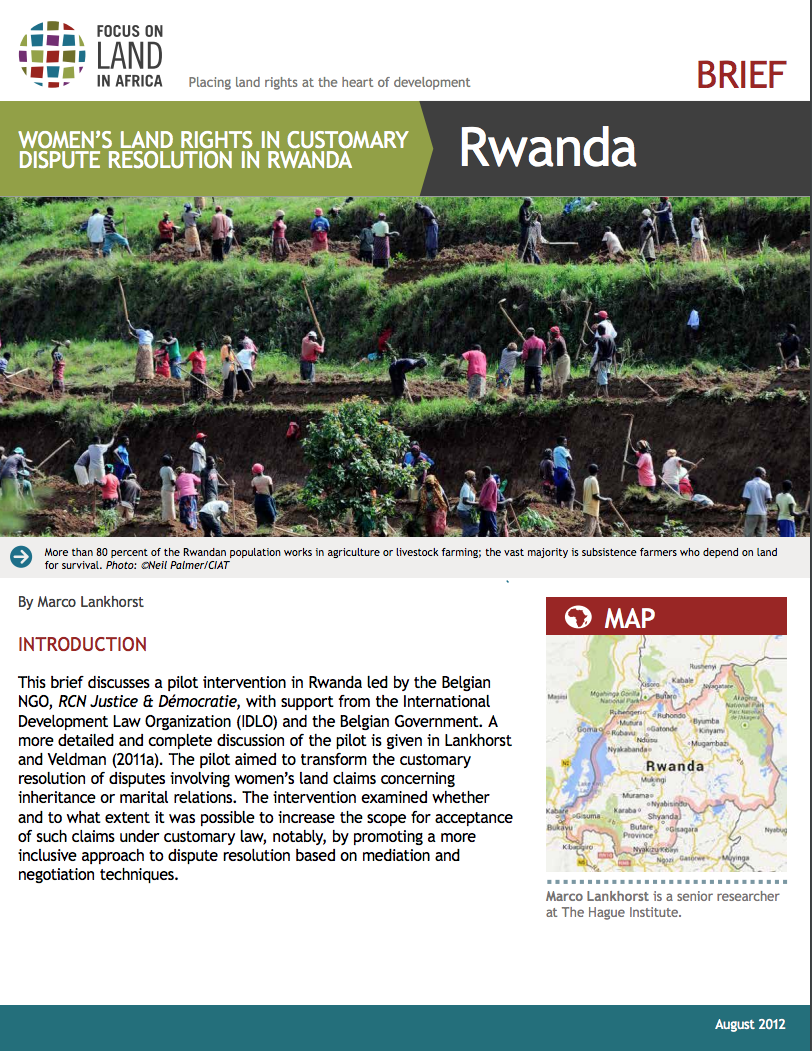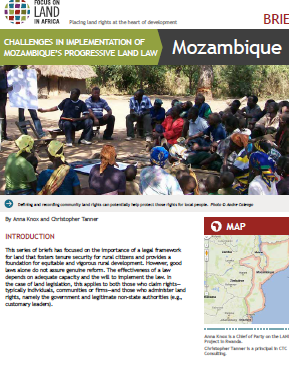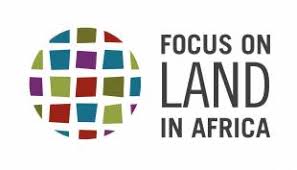Focus on Land in Africa (FOLA) is an educational resource for development practitioners and policy makers that explores how land and natural resource rights affect, and are effected by, development in Africa. Through raising awareness of these issues, FOLA aims to elevate land and natural resource rights as an urgent priority for development in Africa.
While never offering a blueprint, FOLA shares a diversity of insights, experiences, and lessons from countries across the continent, highlighting the critical role of property rights in local livelihoods and development.
It examines the impact of land and natural resource rights on agriculture, the environment, conflict, urban poverty, women's empowerment, and other development issues. It provides in-depth analysis of a variety of property rights issues, and how they are addressed in different countries and contexts.
Engage With Us
FOLA invites your questions and contributions. We welcome briefs, case studies, audio-visual material, and commentary. Please see our submission and review guidelines for more information.
Contact us at focusonlandinafrica [at] gmail.com and follow us on Twitter @AfricaLandRts
FOLA Partners
FOLA is a joint initiative of the World Resources Institute (WRI) and Landesa, with initial funding from the Bill & Melinda Gates Foundation. Content providers include land and natural resource rights experts and development practitioners working on Africa.
Members:
Resources
Displaying 6 - 10 of 10Custom, Law and Women’s Land Rights in Zambia
Most women in Zambia do not enjoy the same land rights as men. Zambia’s Lands Act provides support for women who hold statutory land, but the law does not apply to customary land. Most land is held under custom and most customary tenure systems do not provide women with significant land rights — even when they do, traditional institutions often do not effectively implement the rules.
Women’s Land Rights in Customary Dispute Resolution in Rwanda: Lessons from a Pilot Intervention by RCN Justice et Démocratie
This brief discusses a pilot intervention in Rwanda led by the Belgian
NGO, RCN Justice & Démocratie, with support from the International
Development Law Organization (IDLO) and the Belgian Government. A
more detailed and complete discussion of the pilot is given in Lankhorst
and Veldman (2011a). The pilot aimed to transform the customary
resolution of disputes involving women’s land claims concerning
inheritance or marital relations. The intervention examined whether
and to what extent it was possible to increase the scope for acceptance
comunity investor partnerships in Mozambique
Private investment is critical to Mozambique’s development strategy.
Investment can stimulate the rural economy by helping to modernize the
agriculture sector, provide rural employment, and establish new markets
and market linkages. Private investment can fund the development of
Challengs in Mozambique In Implamatation of Mozambique's progressie land Law
This series of briefs has focused on the importance of a legal framework
for land that fosters tenure security for rural citizens and provides a foundation forv equitable and vigorous rural development. However, good laws alone do not assure genuine reform. The effectiveness of a law depends on adequate capacity and the will to implement the law. In the case of land legislation, this applies to both those who claim rights— typically individuals, communities or firms—and those who administer land rights, namely the government and and legitimate non-state authorities (e.g.,
Brief: Nigerian Land Markets and the Land Use Law of 1978
Among the main objectives of the Nigerian Land Use Decree of 1978 were:





